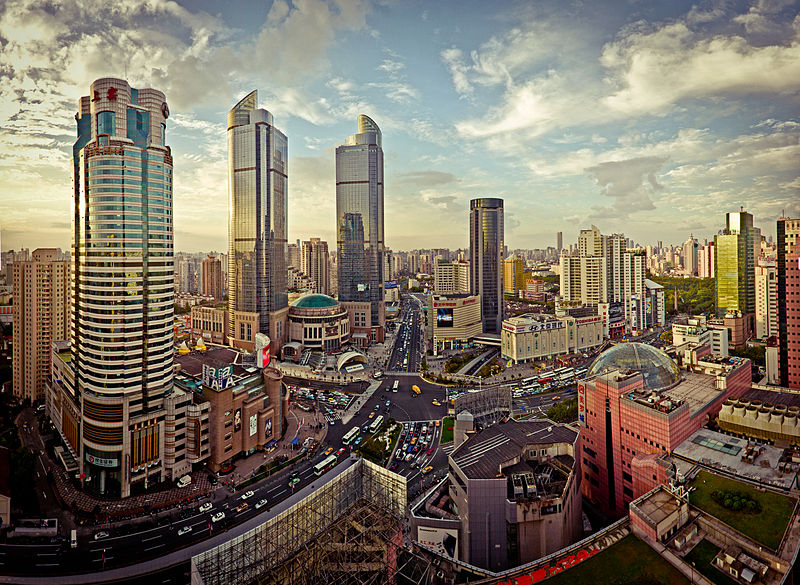In an attempt to further liberalize China’s economy, central government officials have created an experimental new free trade zone, which officially opened for business this week. The zone combines four existing but smaller development areas within Shanghai that are already exempt from import and export tariffs. Although the entire zone spans only about 29 square kilometers, many people believe its creation is just as important as the special economic zone that first opened the door for foreign investors to China’s economy, created in Shenzhen about 30 years ago. Given the excitement, some companies headquartered in Shanghai, especially those listed on the domestic A-share market, have seen their stock prices soar on the news.
I had an opportunity to visit several Shanghai-based companies during my recent research trip there. While many people (myself included) remain unclear as to all the details of the plan, most are quite encouraged by the move. Through my conversations with local businessmen, it seemed clear that two things really set the Shanghai Free Trade Zone (FTZ) apart from recent economic experiments elsewhere in China, such as in Wenzhou and Shenzhen.
First is the ease of doing business. The Shanghai FTZ will introduce the concept of a “negative” or restricted list of business areas. Thus, companies, especially foreign companies, can choose to engage in a variety of business activities as long as they are not on the government-restricted list. Currently, companies can only do what the government explicitly allows them. The freedom to explore is one of the key elements needed for innovation in business, and the Chinese government itself may perhaps also learn how to adapt to a role with limited power in business through the zone. Second is financial liberalization. It is widely expected that banks operating in the new trade zone will have the freedom to set interest rates freely, and may not be subject to the current interest rate cap imposed by China’s central bank. In addition, there is also discussion over some degree of capital account convertibility of China’s currency, the renminbi.
Some critics have questioned whether the new trade zone is just another method for the local government to raise more land sale revenue. However, I see more positive signs this time. First of all, the decision to set up the zone comes directly from the central government, and is exempt from certain laws implemented everywhere else in China, giving more freedom to businesses. Even Asia’s richest man, billionaire Li Ka-Shing, recently commented that with the development of the free trade zone, Shanghai could pose serious competition to Hong Kong’s current status as the free business gateway to China.
Why might China’s government take this experiment so seriously this time? There are two compelling pressures. Internally, economically developed areas like Shanghai have faced significant growth bottlenecks in recent years, and seek further reform in order to liberalize the economy, especially the services sector. Internationally, Chinese officials in late May expressed China’s interest in joining Trans Pacific Partnership (TPP) negotiations. Being able to join the TPP means further opening its economy, especially financial services to international competition for China. Thus, the government needs a test case like the FTZ to access its readiness for greater competition in these sectors.
Shanghai’s talent base, legal system and administrative efficiency still need to catch up with international service centers in Asia like Hong Kong and Singapore. However, if Shanghai’s experiment is considered a success, liberalization policies may be rolled out to the rest of the country. This is how reform happens in China: taking thoughtful steps with measured risks. We saw how experiments in its special economic zones transformed China into the world’s factory decades ago. This time, the expectations seem equally high for Shanghai’s new experiment.
Sherwood Zhang, CFA
Research Analyst at Matthews Asia
The views and information discussed represent opinion and an assessment of market conditions at a specific point in time that are subject to change. It should not be relied upon as a recommendation to buy and sell particular securities or markets in general. The subject matter contained herein has been derived from several sources believed to be reliable and accurate at the time of compilation. Matthews International Capital Management, LLC does not accept any liability for losses either direct or consequential caused by the use of this information. Investing in international and emerging markets may involve additional risks, such as social and political instability, market illiquidity, exchange-rate fluctuations, a high level of volatility and limited regulation. In addition, single-country funds may be subject to a higher degree of market risk than diversified funds because of concentration in a specific geographic location. Investing in small- and mid-size companies is more risky than investing in large companies, as they may be more volatile and less liquid than large companies. This document has not been reviewed or approved by any regulatory body.
